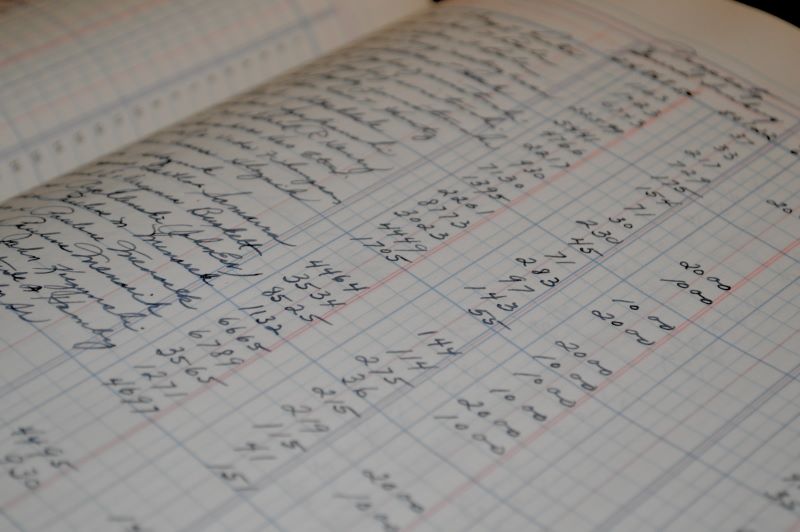
Invoicing of Services
By: Atty. Irwin C. Nidea, Jr.
"VAT on service is due when the purchaser pays or is obligated to pay for services that have already been rendered. When an invoice is issued, it means that there is already obligation to pay because service has already been rendered. When a motorcycle business enterprise, for example, issues a statement of account, it means that it has already fixed the motorcycle and has completed its service. Thus, an invoice should have been issued instead, and VAT must already be paid."
 Irwin C. Nidea Jr. +632 8403-2001 loc.330 |
Based on the 2022 data from the Philippine Statistics Authority (PSA), a total of 1,109,684 business enterprises are operating in the country. 99.59% of these are Micro Small and Medium Enterprises (MSMEs) and only 0.41% are large enterprises.
The top five (5) industry sectors according to the Department of Trade and Industry (DTI), based on the number of MSMEs in 2022 were: (1) Wholesale and Retail Trade; Repair of Motor Vehicles and Motorcycles (546,863); (2) Accommodation and Food Service Activities (158,113); (3) Manufacturing (133,504); (4) Other Service Activities (71,145); and (5) Financial and Insurance Activities (50,782). These industries accounted for about 86.90% of the total number of MSME establishments. (MSME Statistics | Department of Trade and Industry Philippines (dti.gov.ph))
 Collectively, these MSMEs generated 65.10% of the country’s total employment. It is also worth noting that three of the five major enterprises enumerated above are in the service sector.
Collectively, these MSMEs generated 65.10% of the country’s total employment. It is also worth noting that three of the five major enterprises enumerated above are in the service sector.
Based on this data, more than 50% of the country’s workers will be affected by the new invoicing rule introduced in the Ease of Paying Taxes Law (EOPT). Why? Cash Flow of these MSMEs will be hit.
These MSME service providers usually rely on what they earn in a day to pay for the salary of their workers and other expenses to keep their operations afloat. They bill their clients after completing a job by issuing a statement of account. Prior to the EOPT Law, they are required to pay VAT only when they have collected the billings that they issued to their clients. It is only at this time, that they are required to remit the VAT to the BIR. But with the advent of the EOPT Law, every service provider, may it be a small or large enterprise, is now required to pay VAT at the time of billing and not at the time of collection.
In other words, even if a motorcycle repair business has not yet collected its billing from its customer, e.g. P100,000 plus the P12,000 VAT, it is mandated by the new law to advance the P12,000 VAT and pay the same to the government. What happens if the customer does not pay? The MSME enterprise has a remedy. It may deduct the output VAT derived from its uncollected receivables from the output VAT in the subsequent quarter, following the lapse of the agreed-upon payment period. To be eligible for output VAT credit, the motorcycle repair business must prove that the sale has taken place after the effectivity of the Regulations, the sale is on credit, VAT has been fully paid to the BIR, and that the VAT component of uncollected receivables has not been claimed as an allowable deduction (bad debts) for income tax purposes.
These are strict requirements for a service provider that has a very tight cash flow. To adopt, many MSMEs will be forced to streamline their operations, apply for a loan to augment their cash, or totally close operations because they cannot sustain their operations under the new tax rule.
Big business will initially feel a dent. But it can easily recover by simply asking for an increased credit line from their banks. It is expected that small enterprises will feel big waves after big waves as their advance VAT payments balloon.
Because of the impact of these advance VAT payments in a service provider’s operations, many are asking if they can issue the invoice only when payment is made by their customers. This stems from the statement in the regulations that an Invoice may also serve as a written admission or acknowledgment of the fact that money has been paid and received for the payment of goods or services.
The statement that an invoice may serve as proof of payment may confuse taxpayers as regards the period when output tax liability of the seller of service accrues; especially that supplementary documents including delivery receipt or statement of account are allowed to be issued. As clarified in the regulations, these supplementary documents cannot be used to claim input VAT. But this can be interpreted that a service provider can issue a statement of account to its customers before issuing an invoice. In other words, a taxpayer can issue a statement of account showing the amount of fees due and issue the invoice only when payment is received. In effect, service providers can still choose not to pay VAT on their uncollected billings.
This interpretation may be inconsistent with the definition of gross sales as the basis for VAT, under the EOPT Law. The said law provides that VAT shall be imposed on the gross sales derived from the sale or exchange of services, including the use or lease of properties. The term gross sales means the total amount of money or its equivalent representing the contract price, compensation, service fee, rental…which the purchaser pays or obligated to pay to the seller in consideration of the sale…of services that has already been rendered by the seller….
So, VAT on service is due when the purchaser pays or is obligated to pay for services that have already been rendered. When an invoice is issued, it means that there is already obligation to pay because service has already been rendered. When a motorcycle business enterprise, for example, issues a statement of account, it means that it has already fixed the motorcycle and has completed its service. Thus, an invoice should have been issued instead, and VAT must already be paid.
I hope our policymakers are aware of the impact of this change on small businesses. After all, they are the main drivers of the economy. The government will benefit from an increased upfront collection of VAT in the short term because of the advance payments of VAT. But it should consider the impact of this policy on the livelihoods of the small Filipino entrepreneurs whose cash flow might dwindle and later die.
The author is a senior partner of Du-Baladad and Associates Law Offices, a member-firm of WTS Global.
The article is for general information only and is not intended, nor should be construed as a substitute for tax, legal or financial advice on any specific matter. Applicability of this article to any actual or particular tax or legal issue should be supported therefore by a professional study or advice. If you have any comments or questions concerning the article, you may e-mail the author at This email address is being protected from spambots. You need JavaScript enabled to view it. or call 8403-2001 local 330.




